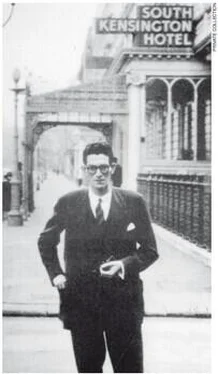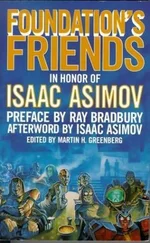Ben Macintyre - A Spy Among Friends
Здесь есть возможность читать онлайн «Ben Macintyre - A Spy Among Friends» весь текст электронной книги совершенно бесплатно (целиком полную версию без сокращений). В некоторых случаях можно слушать аудио, скачать через торрент в формате fb2 и присутствует краткое содержание. Год выпуска: 2014, ISBN: 2014, Издательство: Bloomsbury Publishing, Жанр: Старинная литература, на английском языке. Описание произведения, (предисловие) а так же отзывы посетителей доступны на портале библиотеки ЛибКат.
- Название:A Spy Among Friends
- Автор:
- Издательство:Bloomsbury Publishing
- Жанр:
- Год:2014
- ISBN:9781408851746
- Рейтинг книги:5 / 5. Голосов: 1
-
Избранное:Добавить в избранное
- Отзывы:
-
Ваша оценка:
- 100
- 1
- 2
- 3
- 4
- 5
A Spy Among Friends: краткое содержание, описание и аннотация
Предлагаем к чтению аннотацию, описание, краткое содержание или предисловие (зависит от того, что написал сам автор книги «A Spy Among Friends»). Если вы не нашли необходимую информацию о книге — напишите в комментариях, мы постараемся отыскать её.
A Spy Among Friends — читать онлайн бесплатно полную книгу (весь текст) целиком
Ниже представлен текст книги, разбитый по страницам. Система сохранения места последней прочитанной страницы, позволяет с удобством читать онлайн бесплатно книгу «A Spy Among Friends», без необходимости каждый раз заново искать на чём Вы остановились. Поставьте закладку, и сможете в любой момент перейти на страницу, на которой закончили чтение.
Интервал:
Закладка:
None of the incursions had proved more catastrophic, more spectacularly valueless, than Operation Valuable. Undaunted, the British continued to train the ‘pixies’ in Malta, while the CIA established a separate training camp for Albanian insurgents, now including teams of parachutists, in a walled villa outside Heidelberg. ‘We knew that they would retaliate against our families,’ said one recruit, but ‘we had high hopes.’ At the same time, MI6 prepared to drop thousands of propaganda leaflets over Albania from unmanned hot air balloons: ‘The boys in London imagined a rain of pamphlets over Albanian towns with thousands of Albanians picking them out of the air, reading them and then preparing themselves for the liberation.’ The first parachutists were flown in by Polish former RAF pilots in late 1950, crossing into Albanian airspace at a height of just 200 feet to avoid radar.
The communist forces were ready and waiting. Two days earlier, hundreds of security police had poured into the area of the drop zone. A policeman was stationed in every village. They even knew the names of the arriving insurgents. Some of the parachutists were killed on landing, others captured. Only a few escaped. The next drop, the following July, was even more disastrous. One group of four parachutists was mown down immediately; another was surrounded, with two killed and two captured; the last group of four fled to a house, and barricaded themselves in. The police set fire to the building, and burned them all to death. British-trained fighters continued to filter into Albania, some by boat and others on foot across the Greek border, only to be intercepted like their predecessors. Meanwhile, across Albania, the Sigurimi began rounding up relatives and friends of the insurgents. A shared surname was enough to invite suspicion. For each guerrilla, as many as forty others were shot or thrown into prison. Two captives were ‘tied to the back of a Jeep and dragged through the streets until their bodies were reduced to a bloody pulp’. A handful of the fighters apparently escaped and sent back radio messages, urging the British and Americans to send more forces. Only much later did it emerge that the Sigurimi was running a classic double cross: the messages were sent by captives, forced to reveal their codes and transmitting with guns to their heads. ‘Our famous radio game brought about the ignominious failure of the plans of the foreign enemy,’ bragged Enver Hoxha. ‘The bands of criminals who were dropped in by parachute or infiltrated across the border at our request came like lambs to the slaughter.’
Show trials were later staged with captured survivors – propaganda spectacles at which the tortured, semi-coherent defendants condemned themselves and cursed their capitalist backers, before being sentenced to long prison terms, from which few emerged alive.
In London and Washington, as the operation lurched from failure to calamity, morale slumped, and suspicions rose. ‘It was obvious there was a leak somewhere,’ said one CIA officer. ‘We had several meetings, trying to figure out where the thing was going wrong. We had to ask ourselves how long we were prepared to go on dropping these young men into the bag.’ The British privately blamed the Americans, and vice versa. ‘Our security was very, very tight,’ insisted Colonel Smiley.
In fact, the secrecy surrounding the operation was anything but secure. Soviet intelligence had penetrated not just the Albanian émigré groups in Europe, but every other community of disgruntled exiles. James Angleton learned, through his Italian contacts, that Valuable had been ‘well and truly blown’ from the start: Italian intelligence had been watching the Stormie Seas from the moment she set sail for Albania. Journalists also got wind of the story. Once the first teams of guerrillas had been intercepted, the Albanian authorities were naturally braced for more. The operation was flawed from its inception: Hoxha was more firmly entrenched, and the opposition to him much weaker, than Anglo-American intelligence imagined. The planners had simply believed that ‘Albania would fall from the Soviet imperial tree like a ripe plum and other fruit would soon follow’. And they were simply wrong.
Operation Valuable might well have failed without Philby, but not so utterly, nor so bloodily. Looking back, the planners knew whom to blame for the embarrassing and unmitigated failure. ‘There is little question that Philby not only informed Moscow of overall British and American planning,’ wrote CIA historian Harry Rositzke, ‘but provided details on the individual despatch of agent teams before they arrived in Albania.’ Yuri Modin, the NKVD controller in London who passed on Philby’s messages to Moscow, was also explicit: ‘He gave us vital information about the number of men involved, the day and the time of the landing, the weapons they were bringing and their precise programme of action . . . the Soviets duly passed on Philby’s information to Albanians who set up ambushes.’
Philby later gloried in what he had done: ‘The agents we sent into Albania were armed men intent on murder, sabotage and assassination. They were quite as ready as I was to contemplate bloodshed in the service of a political ideal. They knew the risks they were running. I was serving the interests of the Soviet Union and those interests required that these men were defeated. To the extent that I helped defeat them, even if it caused their deaths, I have no regrets.’
The precise death toll will never be known: somewhere between 100 and 200 Albanian guerrillas perished; if their families and other reprisal victims are taken into account, the figure rises into the thousands. Years later, those who had deployed the doomed Albanian insurgents came to the conclusion that, over the course of two lunch-filled years, James Angleton ‘gave Philby over drinks the precise coordinates for every drop zone of the CIA in Albania’.
At the heart of the tragedy lay a close friendship, and a great betrayal. Lunch at Harvey’s restaurant came with a hefty bill.
See Notes on Chapter 9
10
Homer’s Odyssey
The annual Thanksgiving party at the Angleton home in 1950 was not a sober affair. Jim and Cicely Angleton invited the entire Philby clan to their Arlington house for a turkey dinner with all the trimmings. The other guests included Wilfred Mann, a physicist in the British embassy’s science section. According to some accounts William E. Colby, future head of the CIA, was also present. All four men were deeply involved in the accelerating nuclear arms race, and the espionage attendant on it. The Soviet Union had carried out its first nuclear test a year earlier, thanks in part to Moscow’s spies penetrating the West’s atomic programme. The Venona intercepts identified one of the Soviet spies at Los Alamos labs as Klaus Fuchs, a German-born nuclear physicist. Philby had alerted Moscow Centre when the trap was closing on Fuchs, but too late to save him: he confessed under questioning and was now serving a fourteen-year prison sentence. A number of other Soviet agents were warned that they too were in danger. Several fled. Two who did not were Julius and Ethel Rosenberg, organisers of a Soviet spy ring in New York. In 1953 they would be executed.
Spies were dying. President Truman was calling for a build-up of weapons to halt the spread of Soviet influence around the globe. There was talk of nuclear war, and the Western intelligence services were locked in increasingly bloody conflict with their Soviet rivals. The opposing sides in that secret war were ranged around Angleton’s dinner table, but no hint of discord marred the happy occasion, as Philby joined his friends in giving bibulous thanks for America’s bounty. ‘Jim and Kim were very fond of each other,’ recalled Cicely Angleton. ‘We all liked him.’ Philby was only thirty-eight but looked a lot older. There was already something raddled in his handsome features. The eyes remained bright and appealing, but the bags beneath them were growing heavier, and the lunches at Harvey’s were taking a toll on his waistline. ‘After a year of keeping up with Angleton,’ he wrote, ‘I took the advice of an elderly lady friend and went on a diet, dropping from thirteen stone to eleven in three months.’
Читать дальшеИнтервал:
Закладка:
Похожие книги на «A Spy Among Friends»
Представляем Вашему вниманию похожие книги на «A Spy Among Friends» списком для выбора. Мы отобрали схожую по названию и смыслу литературу в надежде предоставить читателям больше вариантов отыскать новые, интересные, ещё непрочитанные произведения.
Обсуждение, отзывы о книге «A Spy Among Friends» и просто собственные мнения читателей. Оставьте ваши комментарии, напишите, что Вы думаете о произведении, его смысле или главных героях. Укажите что конкретно понравилось, а что нет, и почему Вы так считаете.












